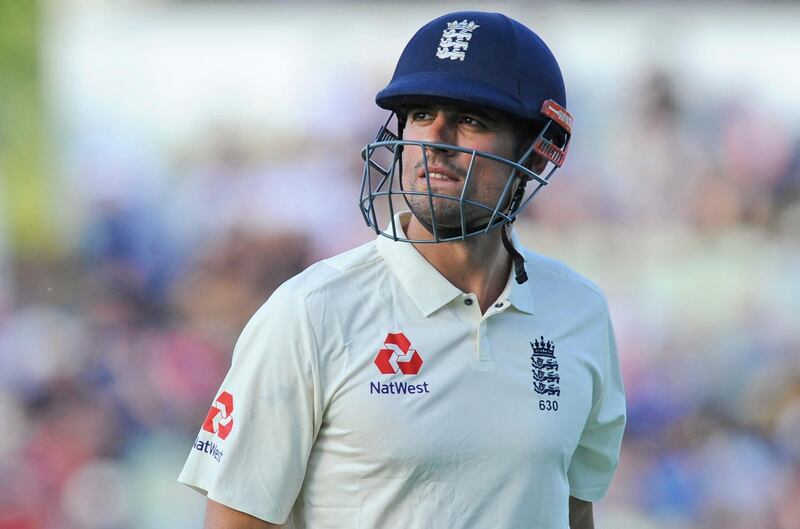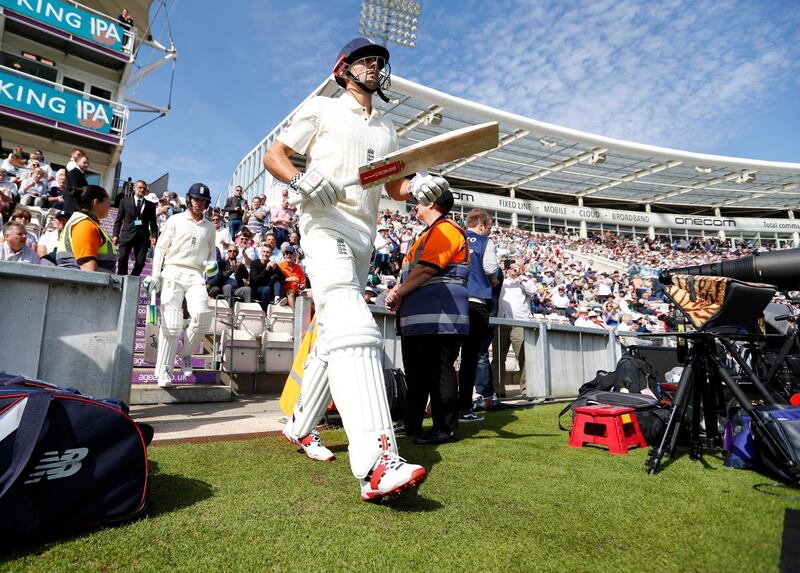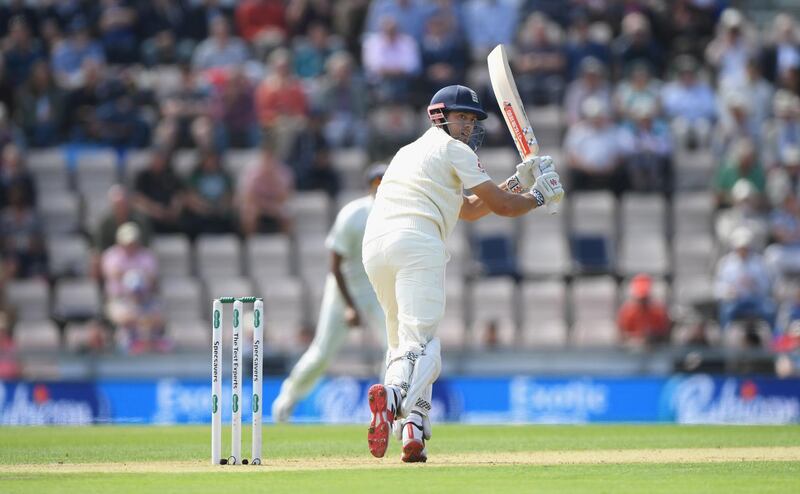It was a late afternoon in 2009 with winter beginning to set in when a line of about 50 people snaked its way from the rear entrance of a bookshop in deepest Essex.
The crowd, a large percentage of which were female - both young and more elderly, perhaps obtaining an early Christmas present for a cricket-mad son - had come to see Alastair Cook to collect his signature on their copy of his new book, exchange pleasantries and pose for a photo or two.
He was fulfilling publishing obligations, but seemed genuinely pleased to see that members of the public were willing to queue for a moment with him. By this point in his career, he already had more than 3,000 Test runs to his name. The turnout could be considered small for an international sportsman in what was effectively his own back yard. Imagine the squirming from a top footballer if dozens rather than thousands arrived for a public appearance.
I was the only journalist in attendance and had to wait until the bookworms/cricket fans had drifted away before being allowed to ask my questions.
Twenty-four-years old at the time, he was affable and relaxed. I was at this point ghost-writing a column in the local paper for his Essex teammate and housemate, Mark Pettini, who the previous week had decided to inject some humour with a lookalikes piece. Cook was on the receiving end - racing driver David Coulthard wasn't so bad, but he was less impressed with the likeness to the character Will from the TV show The Inbetweeners, and vowed to exact revenge on his pal.
I read his book and then followed it up with a critical review for which I felt bad. He was too soon into his career to be able to voice any strong opinion and there was nothing in it that we didn't already know.

This encounter, however, summed Cook up. He remained unflappable, went about his business, avoiding any controversy and generally played life with a straight bat, both on and off the pitch. No court cases over street brawls, no match-fixing scandals, no social media drama.
Now, after 12 years of Test cricket he has decided to call it a day at the end of the ongoing series with India, stating that there is "nothing left in the tank" following a dismal run of form which has seen him average just 15.57 in seven innings this series.
Cook will be remembered for his statistics - England's highest Test run-scorer with 12,254 in a career which has spanned 160 Tests, another national record.
Beyond the numbers however, he should be remembered for the way he played the game in an era when the riches of Twenty20 have threatened the future of Test cricket.
He developed close to a cult following for his defensive streak and refusal to get carried away while others were willing to risk their wicket for a faster path to glory. The purists would point to his time at the crease when all was crumbling around him, rather than his actual runs scored having seen off the new ball at the top of the order.
No other cricketer has been more frequently talked about in my circles, whether it has been in England, here in the Middle East, or comments from Indian fans in Hong Kong. It's always been about the need to get Cook out, or whether he would ever be dismissed during one of those relentless innnings.
___________
Read more:
England vs India: Is James Vince in danger of becoming the modern-day Graeme Hick?
___________
This speaks volumes about what Test cricket will be missing when Cook is gone. Will another player take on the mantle of painstakingly accumulating runs? Will another batsman be cherished for the hundreds of thousands of dot balls that have been watched on the live text update feeds on the internet?
Seeing the manner in which England's current crop of batsmen treat their wicket suggests Cook will be the last of the Test Match blockers, who thrives on making his way to the pavilion with 20 not out at lunch.
It isn't the end of Test cricket, but for some of Cook's followers it feels like it.












